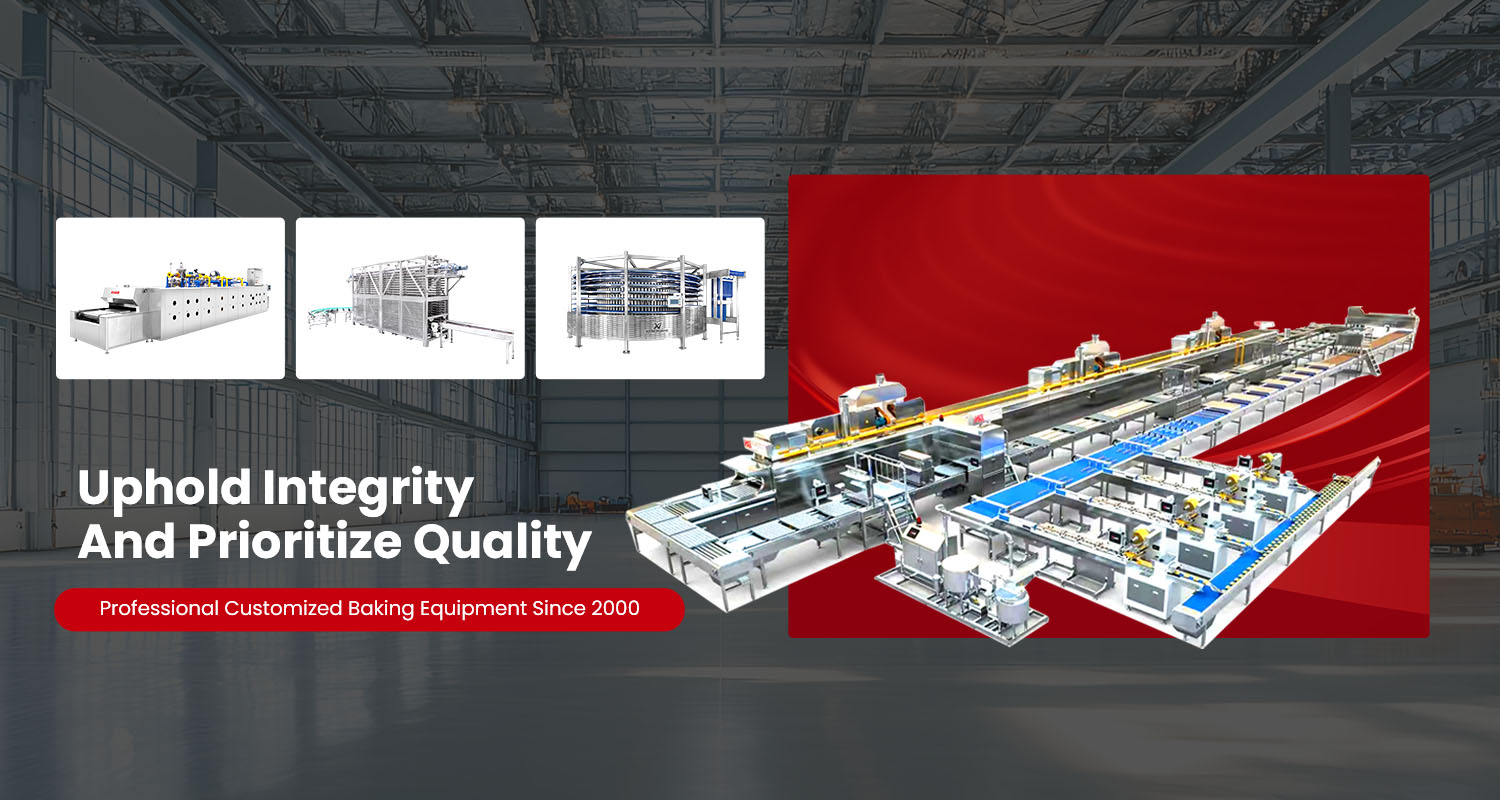What certifications should bakery machinery have?
When selecting bakery production machinery, it is essential to ensure that the equipment carries the right certifications. These certifications offer assurance regarding safety, hygiene, durability and regulatory compliance—criteria that overseas buyers and purchasing managers care deeply about. Below is a structured overview of the key certifications to look for in bakery-machinery purchases and what each certification means.
1. Quality management system certification
A strong manufacturing partner will not only certify the finished machine, but will also operate under a certified quality management system. The internationally-recognised standard is ■ ISO 9001, which is widely used in industrial equipment manufacturing. According to guidance, ISO 9001 certification acts as a solid signal in procurement of machinery and components.
Key considerations:
The manufacturer’s ISO 9001 certificate should be current and issued by a reputable body.
It covers the process controls from design through production, rather than only the finished machine.
When sourcing bakery machinery from overseas, reviewing the ISO certificate helps assess supplier reliability and consistent production quality.
2. Machinery safety and product conformity certifications
For machines used in food production (mixers, ovens, conveyors, depanners, proofing equipment etc.), certifications around mechanical safety, electrical systems and hygiene design are vital.
■ EU / European market
If the equipment is to be placed in or exported to the European market, then the CE Marking is a must for applicable machines. It signifies that the manufacturer has assessed the machine and declared conformity with relevant EU safety, health and environmental protection requirements.
Key points:
For food-processing machinery the EU “Machinery Directive” (2006/42/EC) applies, along with other directives (low voltage, EMC etc.).
Hygiene-design standards (e.g., for food-contact surfaces, cleanability, prevention of contamination) are also relevant.
The CE mark is not a guarantee of quality by itself; the manufacturer must maintain technical documentation and draw up a Declaration of Conformity.
■ North America market
For supply to the U.S./Canadian market, third-party certification by a Nationally Recognised Testing Laboratory (NRTL) such as Underwriters Laboratories (UL) or Intertek’s ETL mark is common. These certifications demonstrate the machine has been independently tested for electrical, fire, mechanical and sanitation safety.
■ Hygiene-design certification
In the baking and low-moisture foods sector, the bakery equipment Assessment Group (BEAG) certification addresses hygienic design of bakery equipment by reference to standards such as ANSI Z50.2. This ensures equipment design minimises contamination risk, eases cleaning, reduces downtime and supports food-safety compliance.
3. Food-contact materials and hygiene-safe design
Because bakery machines often contact dough, baked product, coating, glazes or ingredients, the materials and design must maintain food safety. For example:
Surfaces in contact with food should be smooth, non-corrosive, non-toxic and easy to clean.
Design must avoid accumulation of residue, pests or microbial hazards. The EU guidance highlights these as part of the Hygiene Requirements (for food-processing machinery) under EN standards.
Documentation and traceability of materials in contact must be available.
4. Energy efficiency & environmental compliance
Modern bakery production lines are energy-intensive (mixing, proofing towers, ovens, cooling belts). Certifications or supplier documentation related to energy efficiency, emissions (if gas-fired ovens), insulation, and waste minimisation contribute to long-term cost savings and sustainability credentials. While not always formal certifications, supplier data on energy use, fuel efficiency and operational emissions are part of the broader compliance profile.
5. Manufacturer credentials and after-sales service
Beyond formal certifications, trust in the manufacturer’s credentials, technical support capability, spare-part availability and global after-sales network matter. For example, the company KC‑SMART is a high-tech enterprise founded in 2000 that specialises in intelligent bakery equipment, offering one-stop solutions from design through installation and servicing.
When machinery from KC-SMART is properly certified and delivered, buyers benefit from both equipment reliability and documented compliance.
6. How to use certifications in your sourcing process
Below is a practical checklist you can apply when evaluating machinery:
Request copies of ISO 9001 and any other quality-management certificates for the manufacturer.
Verify CE marking status: confirm the Declaration of Conformity exists, review risk assessment, technical file summary, and check that harmonised standards for food-machinery & hygiene have been applied.
For North America supply, ask for UL / ETL or equivalent listing for electrical/thermal/gas safety.
Ask about BEAG or equivalent hygienic-design certification or audit if the machine deals with dough/filling/baked product in low-moisture environments.
Check material certificates for food-contact parts (e.g., stainless steel grade, weld finishing, surface roughness).
Ask for energy-use data or fuel consumption figures for ovens or proofing/cooling towers.
Confirm maintenance, spare parts, service network and training support from the manufacturer.
Keep certification documents in your procurement file and share them with your QA/engineering teams for factory acceptance reviews.
Summary
In summary, bakery-machinery purchases should emphasise: a certified quality management system (ISO 9001), machinery-safety and conformity certification (CE marking / UL listing), hygiene-design verification (BEAG/hygienic standards for food equipment), food-contact materials compliance, and strong manufacturer credentials with reliable after-sales support. Recognising and verifying these certifications reduces risk for overseas buyers, ensures regulatory acceptance in target markets, supports machine reliability and safeguards your brand reputation. When you partner with an experienced supplier such as KC-SMART you not only gain access to modern intelligent bakery equipment, but also the backing of documented compliance and comprehensive service.
By making certification verification a standard step in your procurement workflow, you ensure that your bakery line investment earns long-term returns, builds operational stability and satisfies global market requirements.






